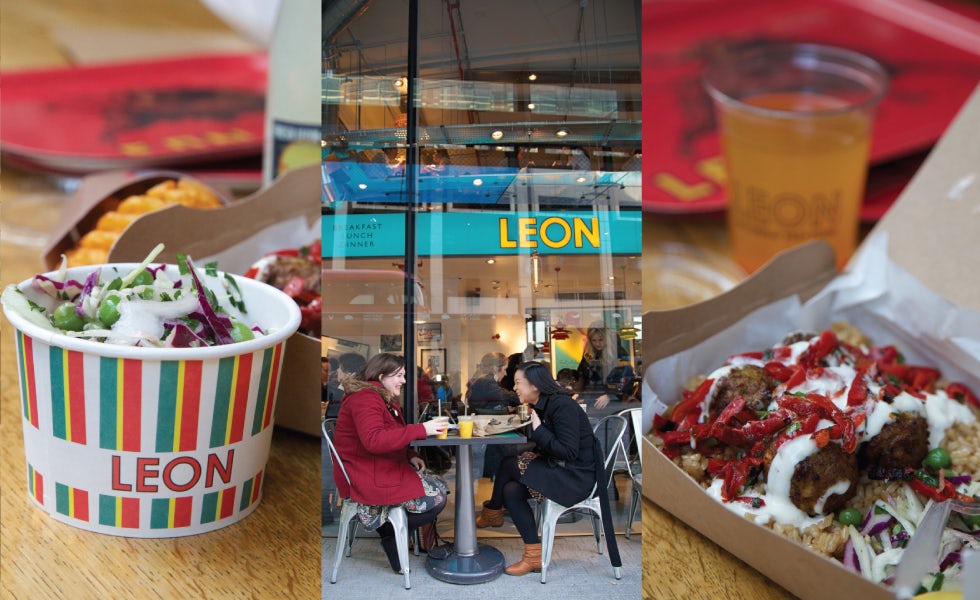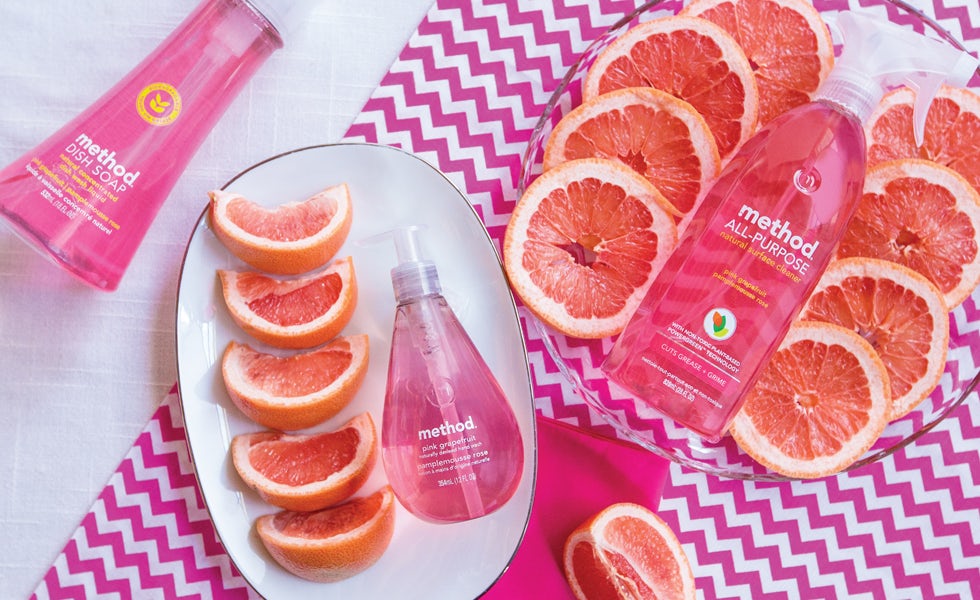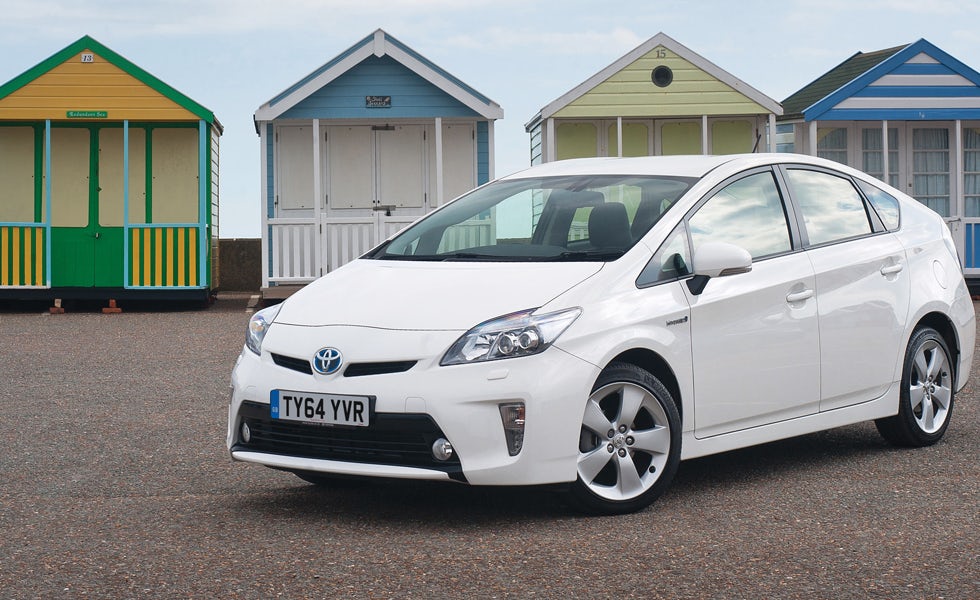Danger: your biggest asset may become a liability
Brands marketing just one product attribute can become vulnerable to changing consumer attitudes.


Received wisdom suggests that eco-friendly products have the benefit of making consumers feel they are helping the environment, which in turn has a positive effect on sales.
But green brands are just one example of how a category’s biggest asset can become a liability – and of how marketers who allow a single attribute to define a product, especially one that doesn’t help consumers see the functional benefits, risk becoming hostage to changing perceptions.
It is not only environmentally aware brands such as Ecover and Toyota that have had to fight against unwelcome associations dogging what they thought was their main selling point. In a similar way, Harris+Hoole has seen the downside that can come with the benefits of winning a big corporate backer.
Conversely, there are brands such as Leon, which has diffused the danger by embracing negative views of fast food and turning them into a positive by establishing itself as a healthy alternative.
Eco unfriendly
While many businesses believe enhancing green credentials will strengthen the perception of their brand, it could actually have the opposite effect, as consumers subconsciously think brands have to sacrifice efficacy in order to minimise their environmental impact according to a new study.
ZenithOptimedia sent two groups of consumers the same standard Tesco washing machine tablet, but while one group was told the truth about the product, the other was told it was a new eco-friendly variant. Consumers claimed the so-called ‘green’ tablet performed worse across all metrics, suggesting that while consumers may say they like eco-friendly products in principle their actions say otherwise.
Respondents scored the eco tablet 9% lower for both effectiveness and likability, while the number who would recommend the product was 11% lower and the number who would buy it themselves 18% lower than for the standard version. Despite eco-friendly products often having a higher price, consumers who tested the ‘green’ tablet were also only prepared to pay £4.41 on average compared to £4.82 for the standard version.
Clare Burke, brand champion for ecological cleaning brands Ecover and Method, believes consumers still have preconceived views about environmentally-friendly products because when they were first introduced to the market more than 30 years ago they weren’t that effective.
“People still think they have to compromise with green products,” she says. “They think that without stringent chemicals they’re not going to get a good clean but that perception is wrong and we’re trying to change it. It takes time though as it has been embedded [in people’s minds] over such a long period of time.”
In order to shift opinions of the Ecover brand, the business refreshed its packaging at the end of 2014, giving more emphasis to effectiveness messages.
“We’re trying to change perceptions by having more of a modern look and making more efficacy claims,” she says. “It has helped create better stand-out on shelf which is really important as in-store is the key area for us to bring people into the brand.”
The move has already led to a “marginal uplift in sales” which has been driven by increased visibility and a focus on performance, she says.
“It’s super important for us that our products go up against the big cleaning brands in terms of performance because we know that consumers are not willing to make sacrifices. We have to make sure our products are as good or better than the competition,” she says.
This emphasis on efficacy is critical for sustainable brands, according to ZenithOptimedia head of insight Richard Shotton, who conducted the media agency’s study, as consumers have “such strong subconscious preconceptions about eco products being less effective that their perception of performance is impacted”.
He adds: “While consumers may claim that they prefer environmentally-friendly products their observed behaviour tells a different story.”

Focus on consumer desire
The psychological barrier is not as problematic for the Method brand, according to Burke, as consumers don’t immediately associate it with being green. The implication is that green brands may be better off communicating how their products meet consumer needs ahead of their ethical values.
“The ethos behind Method is to make sustainable cleaning products desirable so they look beautiful and smell great but also work really well. When people realise they’ve got ecological benefits they are quite surprised so we don’t have the same issue as Ecover,” Burke says.
Data from market research company IRI for March reveals that while the overall household cleaning category is growing its revenues at 1% annually, the natural segment where Method and Ecover sit is now growing at 11%.
Toyota suffered with a similar perception problem when it first launched its hybrid Prius model back in 2000 because while consumers understood the ecological advantages of the technology they were reluctant to believe an environmentally-friendly car could perform as well as a petrol or diesel equivalent.
Today the car marque’s marketing strategy is still focused on dispelling some of the myths associated with hybrid models while promoting the claim that it delivers a “more pleasurable driving experience” and pushing the environmental and cost of ownership benefits.
Stuart Sanders, general manager of Toyota Marketing Communications, says: “Our marketing efforts now focus around encouraging trial and test drive of the car as we find that once customers go hybrid, they are unlikely to return to more traditional options. This was the main insight behind our recent campaign ‘Fall in love with driving again’.”
Sanders says the second strand of Toyota’s strategy is to make hybrid technology available on its “best looking” models so that consumers don’t have to sacrifice style for efficiency. Toyota now offers hybrid technology on three Prius models as well as the Auris, Yaris and most recently on the Rav4, which it unveiled at the New York Motor Show earlier this month.
“This roll-out plan, combined with our marketing efforts, is creating real momentum towards our [target of 50% of sales from hybrids] by 2020,” he says. Auris hybrid sales accounted for over half of all Auris sales last year, according to Toyota.
The downside of a big backer
It’s not just sustainability that can turn from a strength to a weakness in consumers’ eyes.
Getting the backing of a huge global retailer should have been a guaranteed ticket to growth for speciality coffee chain Harris+Hoole, but consumers were quick to turn against the brand when it revealed that Tesco had taken a 49% stake in the business. Poor financial results and an accounting scandal at the supermarket have continued to hurt its perceptions, and Tesco has slowed the roll-out of Harris+Hoole units within its stores.

CEO Nick Tolley says that “it was a difficult period, no question,” when the investment became widely known in 2013.
“As unorthodox as it may have seemed at the time, the fact is that within the business we embrace the relationship. It might be easy to paint Tesco as the big bad guy on the high street but from our perspective they’ve been nothing but supportive in getting us where we are today.”
By any measure, Harris+Hoole has still expanded rapidly, growing from 10 stores two years ago to 46 today.
And despite consumers’ fear that it would turn into a formulaic coffee chain and lose its charm and identity, Tolley believes the only way the business can continue to flourish is by staying true to its values and answering it critics.
“Many people were quickly and easily prepared to label us as a ‘Tesco coffee shop’ and by association attached certain values to us. Yet when they came in and tried our coffee in many ways it felt substantially different to what they might have expected so to a certain extent that expectation and being associated with Tesco wasn’t necessarily a bad thing,” he says.
It was a similar story for sandwich chain Pret a Manger, which was 33% owned by McDonald’s until 2008. In 2011 it began a communications push to dispel the belief that McDonald’s still held a stake. Likewise, Innocent Drinks’ acquisition by Coca-Cola was not well-received by some consumers who felt it went against the brand’s ethos.
But Innocent has worked hard to reassure consumers of its social and environmental standards, which according to the business’s co-founders have improved since the deal was agreed, while at the same time the company has doubled in size.
Pleasing the unreasonable consumer
The propensity of strength to become weaknesses is perhaps explained by modern consumers’ unwillingness to accept trade-offs from brands – they want green and effective, reasonably priced and ethically produced.
In their book ‘A Beautiful Constraint’ authors Adam Morgan and Mark Barden explore the “rise of unreasonableness” in consumers and the fact that challenger brands have disrupted the market by meeting more of consumers’ expectations.
The book suggests that a new generation of companies has taught consumers to believe that the trade-offs they used to consider realistic are no longer acceptable, which simultaneously trains people to want more.
It singles out Uber for offering consumers their own private driver for the cost of a taxi, Method for producing green products that “clean like a mother” and look good too, and automotive brand Tesla for creating a car that “drives like a rocket and looks like a dream while being completely electric”.
“The future, it seems, belongs to the unreasonable challenger who imposes on themselves the constraint of having to satisfy two apparently contradictory poles at the same time, and finds a way to do so. These are the brands that are gaining energy,” the authors state.
Looking to dispel the myth that fast food can’t be good for you is restaurant chain Leon which has been very vocal about the fact it is unwilling to be constrained by the traditional definition of what a fast food chain should be. It has taken the negative perceptions of the sector and turned them into a positive.

Saskia Sidey, brand and marketing manager at Leon, says: “There are definitely preconceived views about unhealthy fast food and our mission is to turn that on its head.”
She believes that people automatically assume – quite often correctly – that traditional fast food is full of salt, preservatives, processed meat and sugar, so it has a job to do to change opinions.
“We’re here to say that there needn’t be any difference between what tastes good and what is good for you. We aren’t trying to create a new type of dining experience – fast food is convenient and should stay that way – making fast food is the best chance we have of making it easy for everyone to eat well,” she adds.
Traditional fast food chains such as McDonald’s and KFC have come under fire in recent years for continuing to produce food with high fat, salt and sugar content at a time when consumers are increasingly demanding healthier alternatives.
But they too are now looking to address consumers’ unwillingness to compromise by launching healthier alternatives and keep up with changing food trends. They may have a tougher job than Leon, however.
Ecover and Method’s Clare Burke agrees that consumers no longer believe they have to compromise. This is not because consumers are more demanding, but simply because their expectations have changed as their options have grown.
“Whether you’re a sustainable brand or a normal brand I think consumers want to know what you stand for now,” she says. “Their principles and values translate into the brand choices they are making. We definitely see that in terms of our segmentation and in what we know about the consumers that buy our products. People are making different choices based on what they believe in. But if they are going to spend a little bit more money on our products they want to know they are going to work.”
Toyota’s Sanders reaches the same conclusion about the future of hybrid technology in cars. “Consumers are not willing to compromise on driving experience in favour of clean emission technology, nor should they,” he says.
The fact is that businesses today need to accept that consumers are no longer willing to compromise so brands increasingly need to deliver across multiple, sometimes conflicting, touchpoints while at the same time backing up any claims so that strengths don’t inadvertently become weaknesses.

Q There was a backlash when you revealed that Tesco had taken a stake in the business – how did you respond?
At no stage did we ever feel we were hiding anything from our customers or the public as the fact we have a relationship with Tesco [has always been] prominent on our website.
We embrace that within the business. We don’t try to pretend that Tesco is some sort of dirty old uncle that we need to hide in the corner. It is part of who we are and a good part of who we are too.
Q How do you try to ensure Harris+Hoole is not defined solely by this association?
It comes down to the very culture and DNA of the business. That’s everything from how we recruit people, what we look for when we recruit, how we train people, remuneration and the objectives we set for ourselves. Everything needs to feed into and reinforce the values we hold as a business.
That’s ultimately how we try to retain that sense of independence. Right from the beginning we have refused to compromise on certain things that we hold dear as a business.







